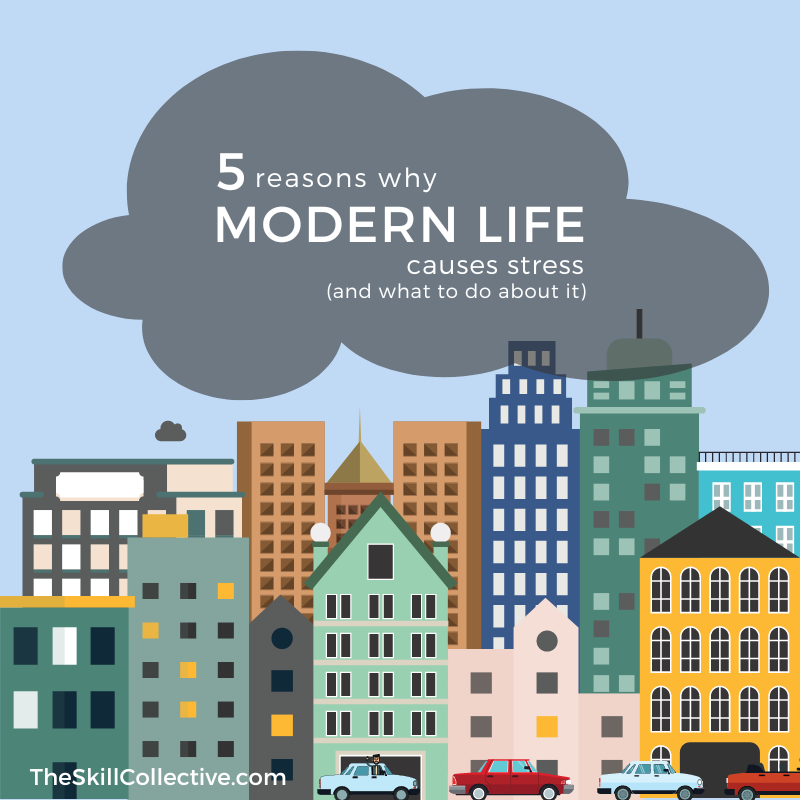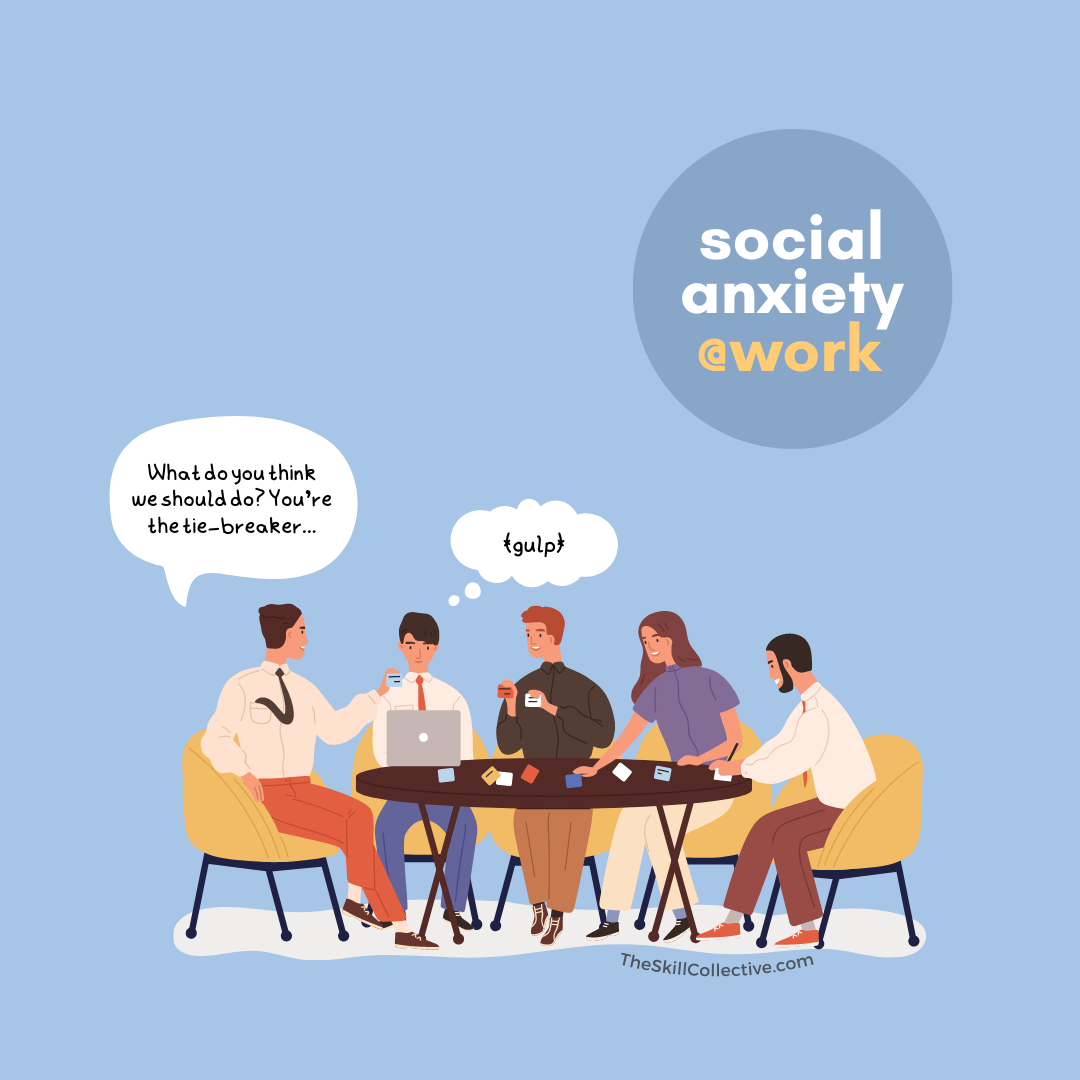10/10 is World Mental Health Day, and with 1 in 5 Australians experiencing mental illness it’s a timely reminder to see how your own mental health is tracking. With anxiety, depression, and substance use problems being in the top 3 most common mental health issues facing Australians, how many of us regularly monitor our mood? Is it time for a Mental Health Check Up? (more on that later)
RETHINKING HOW WE THINK ABOUT MENTAL HEALTH
It’s easy to fall into the trap of thinking that one day you’re fine, and the next day you suddenly feel anxious or depressed. However, mental health isn’t that black and white.
In our work helping people to build better mental health and wellbeing, we can often see that there has been a buildup of ‘daily hassles’ over weeks or months (see our article on 5 reasons why modern life causes stress) leading up to someone contacting us. Alternatively, there are times when more significant events exert a huge toll on an individual’s wellbeing (e.g. death, relationship breakdown, loss of employment, injury/illness, financial stress).
Thinking along a mental health continuum
A more helpful approach therefore is to think about mood as a continuum where we can move from one end (where we’re feeling great), to the other end (where we’re struggling), and recognise that our mood can shift along this continuum depending on our circumstances. So let’s say we feel anxious from time to time, because it is an emotion that alerts us to potential danger, however sometimes we can feel anxious much of the time depending on our circumstances.
If we can adopt this continuum view, then we can shift towards looking at:
Things that lead us down the path towards good mental health including having a resilient mindset, setting aside time for self-care, and engaging in positive health behaviours that support good mental health, vs.
Things that lead us down the path towards poor mental health including significant stressors, poor self-care and health behaviours that worsen mental health, and negative mindset.
In doing so, we can look towards developing skills for better resilience and practising psychological self-care.
RECOGNISING WHEN poor mental health becomeS a ‘problem’
So if emotions such as anxiety, fear, sadness, frustration, anger, are all emotions that we can experience from time to time, and if we can all move up and down the mental health continuum, then how do we know when poor mental health becomes ‘problematic’?
Our clinical psychologist Annie Malcolm has written about the difference between transient mood and disorder in her article What’s the Difference between Sadness and Depression?, but as a general guide look to:
How intense the moods are
How regular the intense moods are
How long the moods last for, and
How much of an impact the mood has on the ability to function (e.g. if we’re avoiding doing things that we would usually do because we feel too anxious or sad).
More generally, it may look like:
Feeling intense anxiety or sadness (or even just an absence of joy) for no apparent reason, and having these feelings on a more regular basis.
Worrying more often than usual, or the way that you think has become more negative. This includes feeling more pessimistic about yourself or others, or having more ‘what if’ thoughts.
Withdrawing from doing things, either due to fear, feeling down/lethargic, or just lacking motivation.
TAKING RESPONSIBILITY FOR YOUR OWN MENTAL HEALTH
As we’ve already indicated above, there are things that we can do that shift us up and down the mental health continuum. Yes, things happen in our lives that aren’t ideal, but we still have choice in how we respond to these events. Below, we’ve outlined a helpful start to taking responsibility for your own mental health:
STEP 1: TAKE THE MENTAL HEALTH CHECK UP (K10)
The very first step is to get a sense of how your mood is tracking, and you can do so using the Mental Health Check Up below (the questionnaire will be emailed to you). The check up is the Kessler-10 (K10), a measure of psychological distress. The K10 is commonly used by general practitioners and psychologists in Australia to see how an individual’s mental health is tracking.
Higher scores on the K10 indicate a higher level of psychological distress, but please note that your K10 score is not a diagnosis but rather a chance to start a conversation with your GP or psychologist on how to bounce back and/or become more psychologically resilient.
There are recommendations for things you can do to improve your mental health and resilience (at the bottom of the K10).
STEP 2: TAKE ACTION FOR BETTER MENTAL HEALTH + WELLBEING
No matter where your mental health is at, there are things that you can do to improve it. We recommend:
Getting the basics right with your physical health, as sleep, exercise, and nutrition have been shown to impact mood. Think getting these right has to be effortful? Think again - see a GP’s perspective on the simple steps you can take for healthy living at Dr Kevin Yong’s blog Eat Move Chill.
Learn mindset shifts to help you shift unhelpful thoughts, expectations, and thinking styles. Get started on making the shift with our four-part series on Healthy Mindset, starting here.
Add in a dash of positive psychology with its Ingredients for Wellbeing + Resilience (the PERMA model).
STEP 3: BE CONSISTENT + AIM FOR SUSTAINABILITY
Better mental health isn’t a set-and-forget exercise. Just like staying physically fit, staying psychologically fit is an ongoing process. So keep monitoring your progress and keep making steady progress.
These three steps will give you a really great template and starting point, and if you find that your mental health is on the wobbly side, speak to your GP or contact us for an appointment.
Want more? You can connect with The Skill Collective in the following ways:
Contact us to make an individual appointment to get started on making changes.
Get access to our FREE resource library filled with exclusive tip-sheets on Wellbeing, Mental Health, and Performance that you won't find here on the blog
Join our FREE 14-day Wellbeing Challenge. Tailored for busy lives we're talking wellbeing tips for better body, mind, and heart in just 15 minutes a day, delivered straight to your inbox.














Keep track of your anxiety by monitoring your mood and sticking with healthy habits. Here we outline how the humble planner can help you to achieve your goals when it comes to anxiety.